We should never confuse the political use of pardons with policymaking. Seeking higher approval ratings among blacks through pardons can never stand in for bad criminal justice, housing, and education policy.
On Wednesday, June 7, President Donald Trump commuted the life sentence of Alice Johnson, 63, who was convicted for a first-time, nonviolent drug offense. Through the executive powers of the president, Trump can pardon people, dead or alive, who are serving or have served federal sentences. After a video produced by the online magazine Mic went viral, Johnson became a symbol of the more than 3,200 people who are serving life sentences for nonviolent offenses, according to the American Civil Liberties Union. Blacks are 13 percent of the population but count as 50 percent among that faction. Johnson endeared many celebrities, including Kim Kardashian West, who presented her case directly to Trump.
Trump already posthumously pardoned the black boxer Jack Johnson, convicted for driving a white woman companion across state lines, and writer Dinesh D’Souza, convicted of making an illegal campaign contribution in 2014. Trump even said in a tweet that he could pardon himself if need be.
Trump even told reporters today that he’s considering pardoning Muhammad Ali, a prospective offer met by the Ali family’s lawyer with an enlightened response that there is no pardon to give. While Ali was convicted in 1967 of draft dodging after refusing to report to fight in the Vietnam War, the Supreme Court unanimously overturned that conviction in 1971, making Trump’s offer moot.
Presidents have always used pardons as political favors. But Trump’s pardons of both Johnsons (and his offhand pardon offer for Ali) are clearly aimed at gaining approval among black voters. Trump tweeted a picture of himself and Kardashian West, who has a massive black following, after their meeting regarding Alice Johnson. Trump could not be more explicit that his relationship with Kim’s husband Kanye bolsters his credibility among black voters.
“Kanye (West) looks and he sees black unemployment at the lowest it’s been in the history of our country,” Trump said in an April 26 interview on “Fox & Friends.” “He sees Hispanic unemployment at the lowest it’s been in the history of our country. He sees (women’s unemployment) the lowest it’s been in now almost 19 years.”
It’s vitally important to not end the social debate at the intersection of Trump’s verbose tweets and his one-off pardon offers, the latter of which mostly serve the individual, not the at-large community. Rather, we must look to the policies that he and his administration are motioning and react shrewdly to those dire impacts on the African American community.
In February 2017, U.S. Attorney General Jeff Sessions repealed the Obama administration’s initiative to decrease the use of private prisons. Sessions also repealed various memos that allowed federal prosecutors to forego prosecuting marijuana offenses if no state laws were violated. Trump is, however, supporting the First Step Act, a prison reform bill that recently passed the House and pushes for increased rehabilitative services within federal prisons. Unfortunately, these back end reforms do not address mandatory minimums or other sentencing issues, which are more pressing when it comes to deincarceration.
Housing and Urban Development (HUD) Secretary Ben Carson recently proposed a plan to raise rents of low-income households receiving HUD assistance. If approved by Congress, the plan would affect around four million households, with about two million affected immediately, and another two million facing rent increases in six years. In the 100 largest metropolitan areas in the U.S., low-income households receiving assistance would pay around 20 percent more in rent annually. According to a study by the Center on Budget and Policy Priorities, a rent increase of 20 percent is about six times more than the current growth in average hourly wages, potentially putting low-income workers at risk of homelessness. The HUD proposal would also allow public housing officials to enforce work requirements. According to the Council of State Governments Justice Center, formerly incarcerated people who lack access to affordable housing are more likely to recidivate.
Last year, the Department of Education began dismissing civil rights complaints that they believed placed an “unreasonable burden” on the agency, which is currently experiencing a backlog of complaints. The Department of Education now dismisses cases that are filed by the same person or group against more than one organization. The NAACP is currently suing Secretary Betsy DeVos, arguing that the department is potentially dismissing complaints even when the student or family provides proof.
Ironically in the same week that Trump floated a pardon of Ali, he cancelled the traditional White House celebration with the winner of the Super Bowl because many of the Philadelphia Eagles players boycotted the visit and disinvited the winning team of the NBA Finals before a champion has been crowned.
Trump’s pardons can certainly be appreciated by the black community, but his policies are what ultimately determines the relationship and the lives of many more people. In this regard, Trump has not delivered.

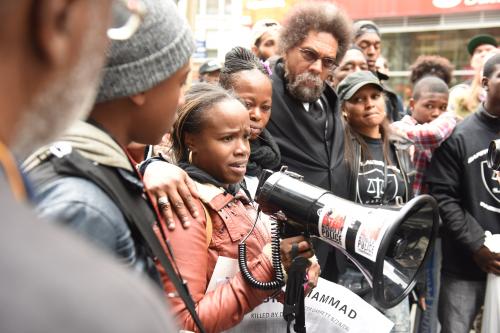
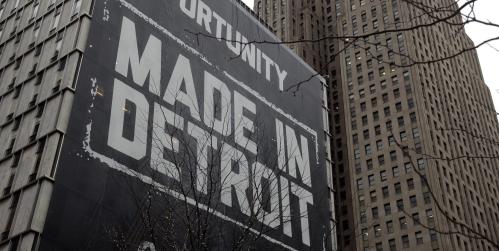
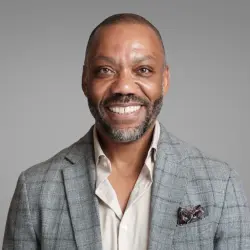

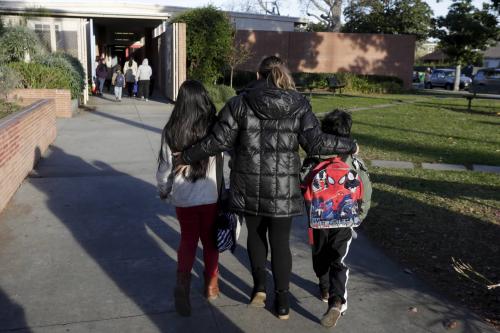
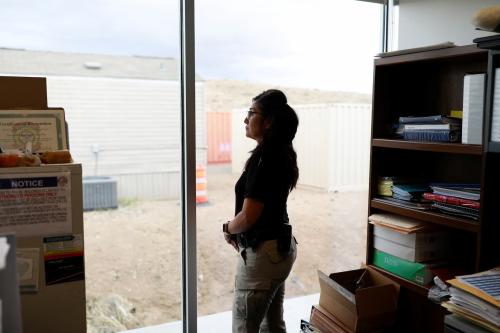
Commentary
Trump’s pardons are not policies for the African American community
June 8, 2018